After Trump took charge of bringing manufacturing back to the US, the industry has opened new opportunities for entrepreneurs looking to start a manufacturing business. With high tariffs on imports, local wholesalers and retailers are seeking options that are both reliable and economical. Therefore, we have compiled the 17 best manufacturing business ideas across low, medium, and high budgets for you to start your business without hesitation.
If you want to go straight to ideas, you can skip the following 2 sections
Scope of manufacturing
The manufacturing sector is the backbone of American economic growth, contributing $2.90 trillion to the U.S. economy in Q1 2025 and making up 9.7% of U.S. GDP.
With 13 million people employed by over 239,000 manufacturers nationwide, and reshoring creating 244,000 new jobs in 2024 alone, the industry offers great opportunities for entrepreneurs aiming to build scalable, profitable businesses.
Unlike service-based businesses like a tech startup offering software development, where the competition is fierce, the manufacturing business has the advantage of offering a tangible product that can be scaled globally. Yes, you can say that the competition is fierce there too. But based on your product, you can conduct thorough market research before launching or always create a unique product to solve a problem and gain worldwide recognition.
For example, we all know how a simple plushie like LABUBU created a worldwide demand, where a LABUBU manufacturer, Wang Ling, became $1.6 billion richer in a single day, reaching a net worth of $22.1 billion. That’s how a tangible product can grow your business from 10 to 100.
So the good news is, the US manufacturing sector is on the rise, and by 2033, this industry is projected to need 3.8 million new manufacturing jobs. So, starting a manufacturing business in the coming year is going to be the best decision.
Find your niche
If you want to build a successful business, start by identifying the market need and then create a product to fill that gap. This is what we call “Finding a niche.” If you focus on serving everyone instead of defining your specific audience, the chances are you are aiming at a dead end. But if you start by choosing a niche first, you can excel and build a strong competitive position in the market.
Take this example – A startup initially tried to sell to everyone, but once it failed, it focused on a specific niche: custom trailers for UTVs and ATVs.
This change helped them quickly respond to customer needs and become profitable. To find such opportunities, start by exploring broad product categories and then use tools like Google Trends and Keyword Planner to identify underserved audiences or niche demands, ensuring there’s sustained interest.
Small manufacturing businesses often struggle to compete with large enterprises on price or sheer volume. However, by choosing a clear niche, they can stand out through special features, better quality, customization, or unique materials and methods. This builds a loyal customer base, reduces price competition, and allows higher profits. Small size becomes an advantage, helping the business succeed in serving a specific, often overlooked market segment.
With this simple strategy, you can achieve long-term success and growth in a competitive world.
21 best manufacturing business ideas divided by budget
| # | Idea | Start-up Cost* | 12-mo ROI | Why Now? |
| 1 | 3-D printed spare parts | <$20 k | 30-50 % | Auto/appliance back-orders |
| 2 | Soy candle studio | $5-10 k | 25-40 % | U.S. candle market 5.6 % CAGR |
| 3 | Upcycled apparel | $15 k | 25-35 % | Gen-Z loves circular fashion |
| 4 | Pet treats | $20 k | 25-45 % | 70 % of U.S. homes own pets |
| 5 | Metal sign POD | $30 k | 30-50 % | Etsy sales up for décor |
| 6 | Organic soap | $12 k | 30-40 % | Clean-label boom |
| 7 | Garage coffee roaster | $40 k | 20-35 % | “Specialty” up 9 % YoY |
| 8 | Smart-home sensors | $75 k | 25-35 % | IoT security fears |
| 9 | Craft microbrewery | $200 k | 20-30 % | Tap-room margins 70 % |
| 10 | CNC furniture | $110 k | 25-40 % | TikTok DIY trend |
| 11 | Biopack pellets | $250 k | 20-30 % | Plastic bans multiply |
| 12 | Prefab sheds | $180 k | 20-25 % | Backyard office craze |
| 13 | Boutique cosmetics | $90 k | 25-35 % | DTC skincare up 14 % |
| 14 | Nutraceutical gummies | $140 k | 25-40 % | Supplements mainstream |
| 15 | EV charger cabinets | $600 k | 25-35 % | NEVI bills rolling out |
| 16 | Lithium battery packs | $1 M | 25-35 % | Stationary storage spike |
| 17 | Solar roof tiles | $950 k | 20-30 % | IRA tax credits |
Low-Investment Ideas (< $50K)
1. 3-D Printed Replacement Parts
In the 3D printed replacement parts business, you can earn high margins while starting with a small initial investment. From small accessories to high-demand items, you can manufacture anything that helps businesses facing supply chain disruptions due to a lack of particular spare parts.
This business is a good investment because, by making in-demand spare parts for industries like aerospace, automotive, and manufacturing, you can reduce downtime for businesses and generate high margins.
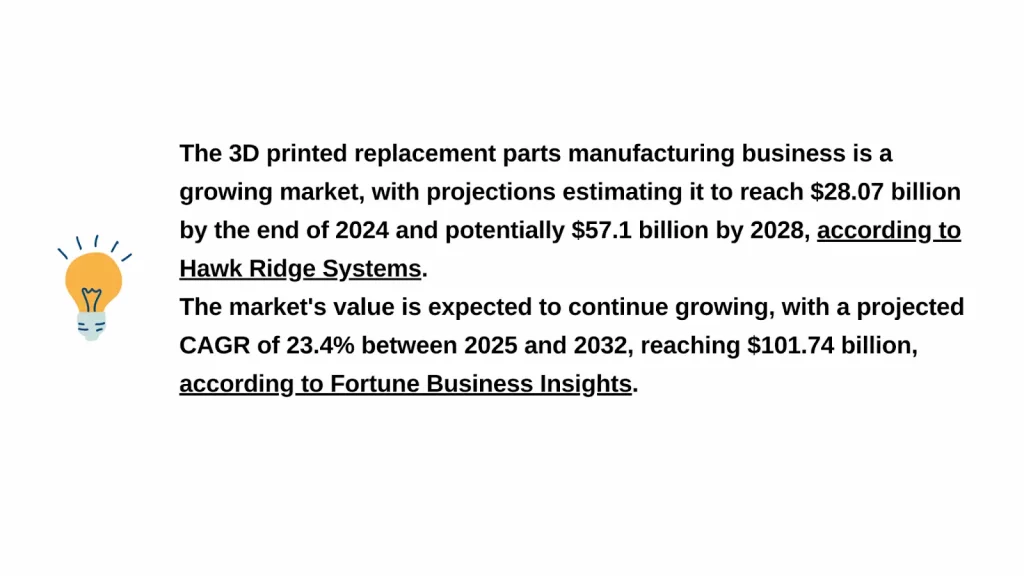
https://www.youtube.com/watch?v=D_Tk9aoEBHM
2. Natural Soy Candle Line
Soy wax is a natural resource that you can use to make a beautiful, natural soy candle line. You can start this business with a small budget of even $5,000 from home. All you have to do is select your product line, source quality materials, create unique designs, and promote it online using organic marketing strategies.
The U.S. candle market is growing at 5.6 % CAGR thanks to the increase in wellness and the aromatherapy trend among consumers.

3. Upcycled Apparel Accessories
There’s a growing upcycled clothing trend on Instagram and TikTok, where influencers showcase their sewing skills by transforming thrift garments into everything from bucket hats and tote bags to beautiful dresses. TikTok’s “thrift-flip” views top the list of free marketing.
So you can start an upcycled apparel accessories manufacturing business using discarded products or appeal to make unique pieces that people die to have. One of the advantages of this business idea is that it’s environmentally friendly, as you are basically minimizing environmental impact by reducing waste and promoting circular fashion. You are following a sustainable fashion practice where you can transform old, boring items into creative, marketable products.

https://www.youtube.com/watch?v=H5l1APVwe7M
4. Gourmet Pet Treats
With the growing demand for healthy pet food options, starting a venture in gourmet pet treats will be profitable. Nearly 70% of U.S. households own a pet. And if you decide to deal with premium treats, they command solid margins of 20% – 40%.
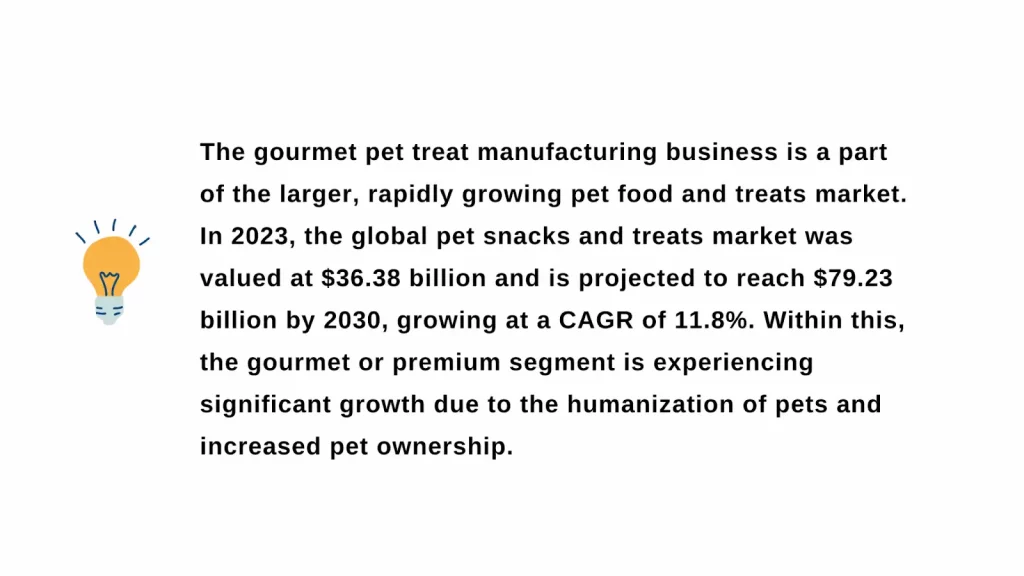
https://www.youtube.com/watch?v=XHXAWbUk-wQ&t=12s
5. Print-on-Demand Metal Signs
Every day, we see parties, weddings, and simple room tour videos where a big metal sign is hanging in the back. It’s not just a sign; it adds personality to the occasion. It’s going to be a future, and you can earn profits from this.
You can start a print-on-demand metal sign business simply by leasing a fiber laser, loading designs from Etsy, and shipping the same week. Personalized décor sells at 5× cost because it adds a sense of individuality, and customers attach their emotions to the product. Therefore, it is considered a low-cost but high-value manufacturing business.

https://www.youtube.com/watch?v=4t0WfBmhtoc&t=1s
6. Organic Soap Bars
People are becoming aware of the hazardous effects of using synthetic products on their skin, which is conversely giving rise to the emerging preference for organic products, whether in food or skin care. Therefore, starting a manufacturing business in the organic personal care space is another great option.
You can start with a single recipe. Formulate a unique recipe, do proper planning, and execute the process. The manufacturing may cost you cents, but the profit margin is solid.

https://www.youtube.com/watch?v=-L97D3Hdk7U&t=1s
7. Coffee Micro-Roaster
You can start a small-scale roasting business simply by sourcing green coffee beans, roasting them in small batches, then packaging and selling the roasted coffee. Next, create a Shopify page, and you can break even after selling 400 lbs. Isn’t it a great idea? But if you want to keep it going, make sure to check quality control and monitor the market so you know if anything new is happening or if there is a shift in consumer preferences, allowing you to adjust your process accordingly.
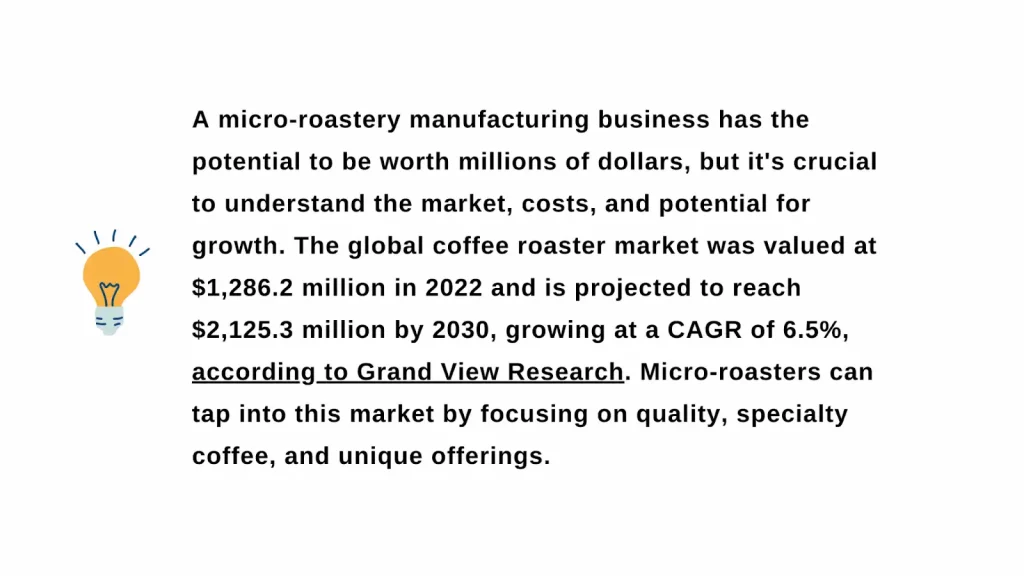
https://www.youtube.com/watch?v=_8RcleHIqJw
Estimated startup costs for a small US manufacturing business
| Expense Category | Average Cost Range (One-Time) | Average Cost Range (Monthly Recurring) |
| Inventory | $50,000 – $100,000 | (Repeats every 30-45 days) |
| Machinery | $50,000 – $300,000 | $5,000 – $20,000 (Annual Maint.) |
| Factory Space | $15,000 – $50,000 (Lease Deposit) | $5,500 – $14,500 (Rent/Mortgage) |
| Improvements | $375,000 – $600,000 | (Part of rent/mortgage) |
| Hiring/Training | $20,000 – $200,000 | $8,000 – $30,000 (Payroll) |
| Quality Control | $10,000 – $50,000 | (Part of maintenance) |
| Legal & Reg. | $1,000 – $5,000 | (Annual insurance $3K-$6K) |
| Marketing | $5,000 – $15,000 (Trade Shows) | $100 – $10,000+ |
| Utilities | – | $4,500 – $6,000 |
| Total Est. | $531,000 – $1,285,000 | $21,000 – $66,000 |
Source: Upmetrics
7 Mid-Investment Ideas ($50K – $500K)
8. Smart-Home Sensor Assembly
With the TikTok boom, we have seen industries starting from scratch that didn’t even exist a few years back. Now, we are seeing videos showcasing smart homes where, from a door knob to a bed lamp, everything is smartly built. There you can tap into this growing market by manufacturing electronic components that help in smart home functionality. It can include designing, prototyping, and large-scale production of sensors, etc., using technologies like IoT (Internet of Things).

https://youtube.com/shorts/CildF0MYtek?si=l4FSGrY2-_IvckBu
9. Craft Microbrewery
A microbrewery is defined as a brewery producing less than 15,000 barrels of beer annually, with at least 75% of its beer sold off-site.
Starting a manufacturing microbrewery business is a great way to differentiate yourself from your large competitors. By focusing on quality, unique flavors, niche audience, and getting a license and permit, you can start your mid-scale business.
All you have to do is rent a 3-bbl brewhouse in an underserved ZIP code. Use contract brewing to test recipes before leasing tanks.
https://www.youtube.com/watch?v=clR7Yggjkec
10. CNC-Cut Designer Furniture
We have all seen furniture pieces that are so hard to replicate due to their unique designs and art. The good news is that you can make such furniture too by utilizing computer numerical control (CNC) technology to create unique designs and high-quality furniture pieces.

This business requires a mid-range investment of $50,000 to $200,000 USD, depending on the scale of your business and factors such as software, design tools, CNC machines, and other equipment.
11. Sustainable Packing Pellets
A sustainable packing pellets business contributes to a circular economy, considered one of the profitable ventures to invest in over the coming years. In this business, you focus on producing eco-friendly packaging materials from recycled and renewable resources.
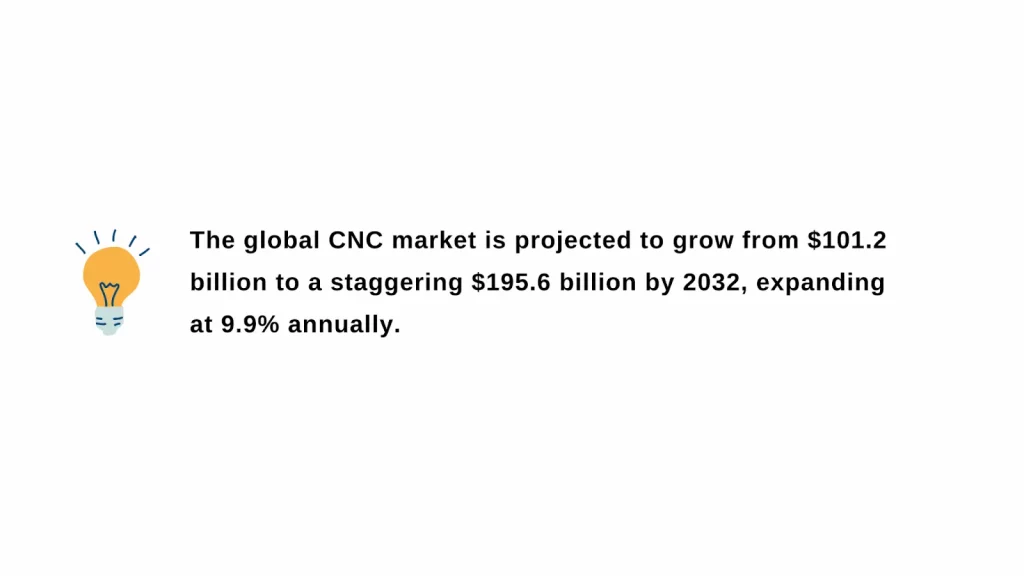
https://www.youtube.com/watch?v=eXT7cn9BRx4
12. Modular Prefab Sheds
In this venture, you manufacture prefabricated building components that are assembled on site to create sheds.
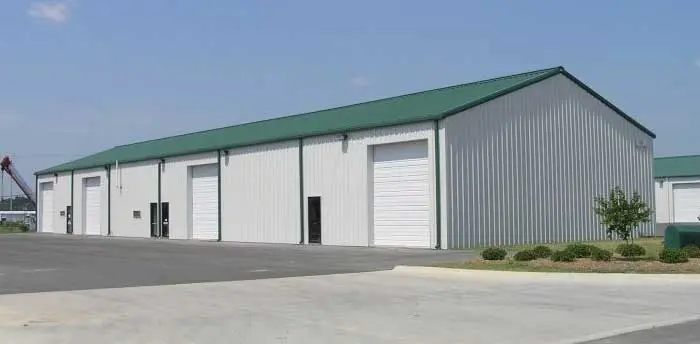
It’s another mid-scale business you can start with a budget of $50K or more.
13. Small-Batch Cosmetics
Another great idea to beat fierce market competition is to step into a niche market, such as focusing on organic materials or targeting a specific skin type, and following a direct-to-consumer sales model. Another way to achieve a competitive advantage is by labeling all the ingredients used in the product; consumers love transparency.
In this venture, you mostly start with a small batch and limited quantities, as you are only targeting a hyper-segmented audience.
14. Niche Nutraceutical Gummies
Nutraceuticals are food-derived substances that provide health benefits beyond basic nutrition. And the perfect medium to deliver the monitored dosage is by giving it in gummies, where you can easily combine active ingredients.
By tapping into the niche Nutraceutical Gummies market, you can cater to a very specific audience and generate up to 50% mark-ups and recurring sales, mostly in Vitamin or mushroom gummy lines.
7 High-Growth, Tech-Forward Ideas (> $500K)
High-tech accounted for 88% of reshoring jobs in 2024, with electronics, electrical gear, and transportation parts leading the way.
15- EV Charger Cabinets
We are increasingly seeing electric vehicles as a means to combat global air pollution and introduce sustainable devices. And this practice gives rise to the demand for EV Charger Cabinets.
Starting a business dealing in EV Charger Cabinets requires a substantial initial investment, but the returns are solid as well.
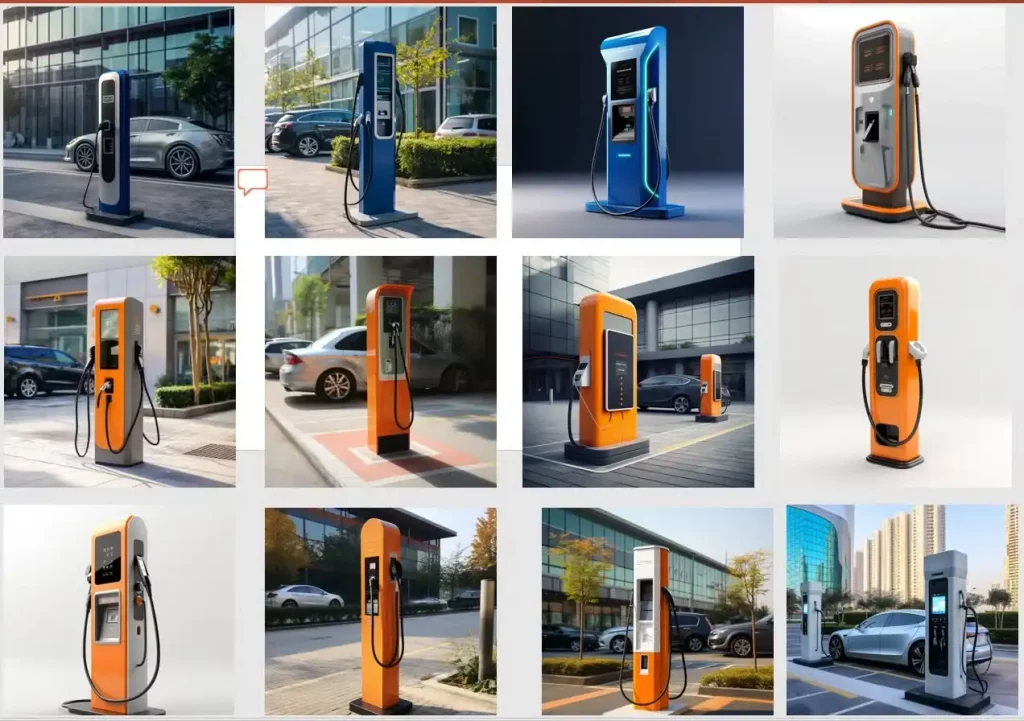
All you have to do is conduct thorough market research, understand your market needs, design enclosures, and source the required materials. Plus, you must also consider customization depending on the specific charging station type.
16- Lithium Battery Pack Assembly
Starting a lithium battery pack assembly business is gaining attention due to the increasing demand for energy storage solutions, but it requires careful planning and a handsome investment.
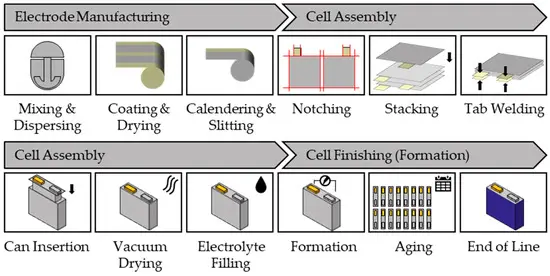
When starting a venture dealing with lithium battery pack assembly, you have to source components, assemble them into battery packs, and ensure quality control and testing. If you want to run a successful business, then don’t forget to understand your market fully, find investors, and get permits, along with setting a proper manufacturing process.
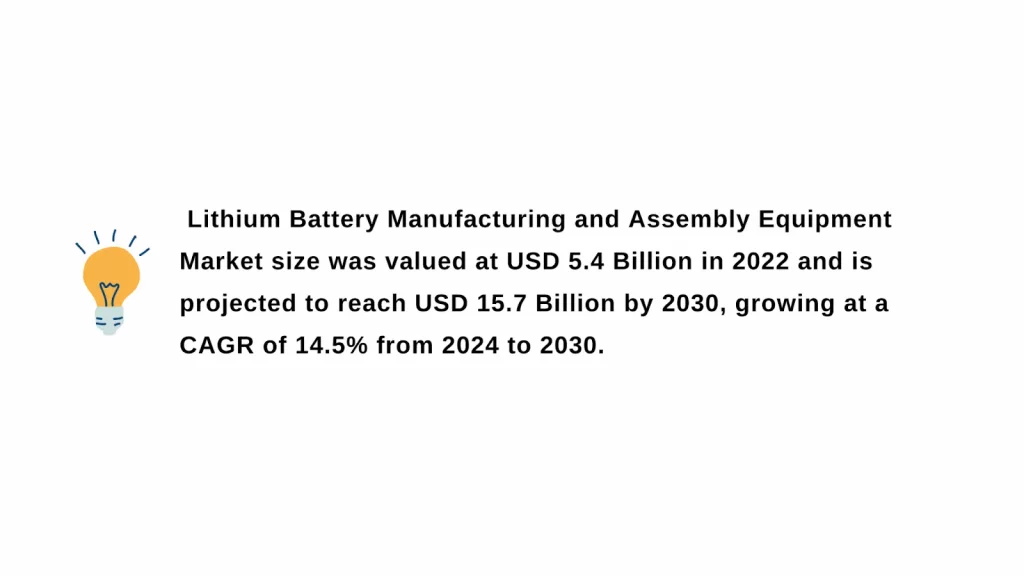
https://www.youtube.com/watch?v=0xwNHCRAIxw&t=105s
17- Solar Roof Tiles
With increasing electricity costs, people are looking for a solution that is both cost-effective and reliable.
To combat rising electricity consumption and prices, you can start your business by manufacturing solar roof tiles that integrate with traditional roofing materials.
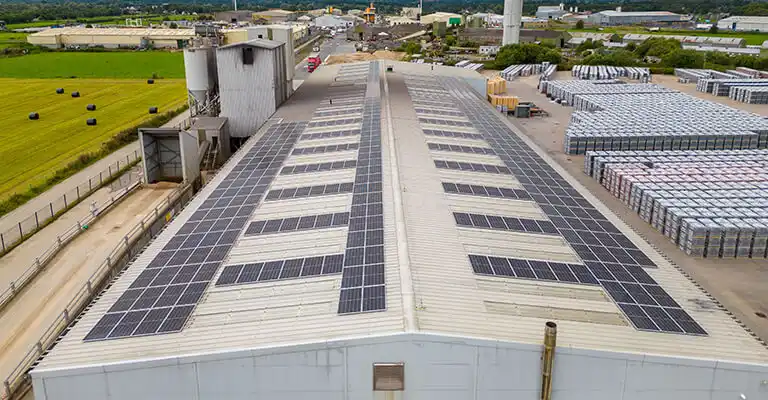
Funding your business
1- Understanding Profit Margins
A healthy profit margin is important for a business to last long. It varies by industry, but a common goal for new businesses is around 20%.
Established small businesses usually aim for a net profit of 7-10%. For example, auto parts stores typically have about a 15.6% gross profit margin, while home furnishings can reach about 30%.
Online retail businesses often have around 41.5% gross profit and 7.2% net profit. Interestingly, new businesses often have higher profit margins at first because they have lower costs before they grow.
2- Traditional Funding Options (SBA Loans)
The Small Business Administration (SBA) offers guaranteed loans, making it easier for small manufacturers to obtain necessary capital from lenders. The SBA 7(a) Loan program is the SBA’s primary business loan program, offering up to $5 million. Funds can be used for a wide range of purposes, including getting real estate and buildings, short- and long-term working capital, refinancing existing business debt, and purchasing/installing machinery and equipment, even AI-related expenses.
Eligibility generally requires the business to be operating for profit, located in the U.S., meet SBA size requirements (typically 500 employees or fewer for manufacturing), and be unable to obtain the desired credit on reasonable terms from non-federal sources.
Another option is the SBA 504 Loan program, which provides long-term, fixed-rate financing, typically up to $5.5 million, specifically for major fixed assets that promote business growth and job creation. This includes the purchase or construction of land, buildings, and machinery. These loans are available through Certified Development Companies (CDCs). To apply for SBA loans, businesses work directly through a participating lender, and the SBA’s Lender Match tool can help connect with suitable lenders.
3- Alternative Funding Solutions
For entrepreneurs who may not qualify for traditional bank loans or need faster access to capital, alternative lenders offer more flexible options. These can include merchant cash advances, invoice factoring (which is particularly ideal for manufacturers dealing with long accounts receivable periods), collateral loans, and business lines of credit. Alternative lenders can provide funding ranging from as low as $3,000 up to $500,000, often with a faster turnaround, with funds approved and deposited within 24 hours. They often have more flexible approval requirements that consider the overall health and potential of a business, not just its credit score.
4- Bootstrapping
Bootstrapping means starting and growing a business with minimal or no outside funding, relying primarily on personal savings and early revenue. Many well-known companies, like Patagonia and GoPro, famously started by bootstrapping.
Patagonia’s founder, Yvon Chouinard, began by blacksmithing climbing pitons.
GoPro’s Nick Woodman sold bead and shell belts out of his van to fund his initial camera prototypes, living with his parents while developing the product. This shows that a large capital is not always necessary for groundbreaking manufacturing ventures.
Licenses, Permits, and Regulations
1- Understanding What is Needed
The specific licenses and permits required for a manufacturing business will depend heavily on the product, operational location (state, county, city), and chosen business structure. It is important to get this right, as failing to obtain the correct licenses and permits can lead to severe consequences, including fines, lawsuits, or even the closure of the business.
2- Key Requirements
Almost all businesses, regardless of size or industry, need a basic city or county business license to operate legally within their local jurisdiction. If a formal business structure like an LLC, corporation, or partnership is chosen, formal registration with the state’s Secretary of State or equivalent agency is required. Certain manufacturing activities or industries may also require specific state-level professional or occupational licenses.
Zoning and land use permits are important to make sure the business location complies with local zoning laws, especially for manufacturing operations, which may have specific industrial or commercial zoning requirements, and is a key consideration for home-based businesses.
In most states, if tangible goods are sold, a sales tax license will be needed to collect and remit sales tax. This may be part of a general business license or a separate requirement.
3- Federal Regulations
Depending on the nature of the manufactured product, federal licenses or permits might be needed from various agencies. These include the U.S. Department of Agriculture (USDA) for businesses importing plants, animals, or animal products, or those involved in organic food production.
The Alcohol and Tobacco Tax and Trade Bureau (TTB) is relevant for manufacturing or selling alcoholic beverages.
The Bureau of Alcohol, Tobacco, Firearms and Explosives (ATF) oversees businesses dealing with ammunition, explosives, or firearms.
The Federal Communications Commission (FCC) is involved in broadcasting for businesses.
The U.S. Food and Drug Administration (FDA) is important for manufacturing dietary supplements, cosmetics, and certain food products, requiring strong quality control and compliance.
4- Environmental Regulations (EPA)
Small manufacturers must comply with various environmental regulations, which involve checking and managing energy consumption, water usage, waste generation, and carbon emissions.
Adopting eco-friendly practices is not just beneficial for the environment; it can also lead to considerable cost savings.
For example, upgrading to energy-efficient systems like LED lighting can reduce energy consumption by up to 80%. Small manufacturers have identified nearly $26 million in potential annual savings through energy, waste, and water reduction initiatives.
5- Safety Standards (OSHA)
The Occupational Safety and Health Administration (OSHA) sets and enforces workplace safety standards. They provide valuable resources specifically designed for small businesses, including a no-cost and confidential On-Site Consultation Program. Prioritizing proper safety protocols, providing adequate personal protective equipment (PPE), and offering regular safety training are crucial steps to minimize workplace hazards and ensure employee well-being. A safe environment also reduces costs related to workers’ compensation.
6- Home-Based Manufacturing
If a manufacturing business is operated from home, zoning laws are most important. Residential zones often have strict limitations on commercial activity, especially large-scale operations. A specific “home occupation permit” (HOP) from the local municipality may be required, and it is important to check any Homeowners’ Association (HOA) rules that might apply. Health and safety codes will still apply, particularly if customers visit the home or if the manufacturing process involves food, chemicals, or generates significant waste or noise. Waste disposal regulations are also a key factor.
Key Regulations and Permits for US Manufacturing Businesses
| Category | Examples of Permits/Licenses | Issuing Authority/Agency |
| General Business | Business License (City/County), State Business Registration (LLC, Corp, Partnership), Sales Tax License | City/County Clerk, State Secretary of State, State Tax Authority |
| Industry-Specific (Federal) | USDA Permit (plants/animals), TTB License (alcohol), ATF License (firearms/explosives), FDA Registration (food, drugs, cosmetics), FCC License (broadcasting) | U.S. Department of Agriculture, Alcohol and Tobacco Tax and Trade Bureau, Bureau of Alcohol, Tobacco, Firearms and Explosives, U.S. Food and Drug Administration, Federal Communications Commission |
| Operational Compliance | Health & Safety Permits, Zoning & Land Use Permits, Environmental Permits, OSHA Compliance | Local Health Dept., Local Zoning Dept., EPA, OSHA |
| Specialized | Professional/Occupational Licenses, Home Occupation Permit (for home-based) | State Licensing Boards, Local Municipalities |
End note
Now you have 17 of the best manufacturing business ideas to start working on your venture. Pick one based on your budget and scale it using diverse marketing strategies. All these businesses have the potential to grow strong in the future. If you are looking to generate a solid margin in the coming years, start today!



